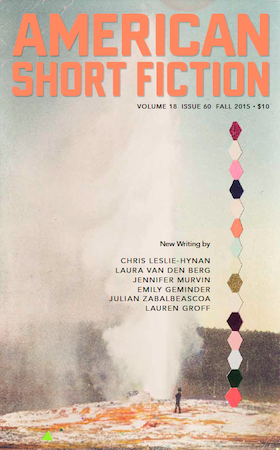“It wasn’t until almost the end that she knew she would be a song. All through the summer she was nearly certain their life together would prove too dull to write about. His music was such a constant procession of ménages à trois in club bathrooms, of course he would turn out to be a homebody. And yet it could have really been like that, hour after hour of fashion wear and fellatio—she thought him the only man in America about whom the revelation of a difference between public image and private life was a revelation at all. He was the hate idol of the Western world, but she was a girl from Oak Lawn, and her quietness would prove too powerful for him. Going to French restaurants, meeting her aunt, dancing on the lawn—how could that be a banger? She thought of herself as his privacy, his calm after the storm of that bald girl. Even in their wildest moments she had only thought a little shyly of his songs of others. These women must have been the ones who demanded something from every store at Crystals in one afternoon, who’d gone to France on private jets and met Frank Ocean when he was still a wide-eyed kid singing about BMWs only aspirationally.”
—
“I went to Iceland to see a volcano. Instead the tour guide took us to Volcano House, where images of gushing lava and smoking craters played on a movie screen. My sister said it was probably as good as the real thing. This was in Reykjavik, on a broad street near the port. Outside I could smell the rot of fish and salt.”
—
“In his life, Dad bought only one piece of art, a rendering in oil of an empty strip mall at twilight. Emporium, it was called, 1985–1992, the
dates part of the title. Often I would think of those dates, seven years, 1985–1992. What did they mean? The length of time the little L-shaped
series of shops stood before going out of business? Did these dates mark the beginning and completion of the painting by the artist? Seven years in that space, yet the light in the painting so perfectly the in-between light of dusk. (Even now, when I am outside in such a sky, I think of Emporium, of my own frustrated curiosity as to why Dad—unartistic, unmoved Dad, who put nothing else on the wall in all his
years—would be so drawn to this painting.)”
—
“This was the summer they entered phone booths and ran out shrieking. They were ten, flat-chested in bathing suits. Limbs wrung like
seaweed. They crowded into payphones, sweat-sticky and iridescent with sunscreen.
No one could say where the number came from. An older sister, maybe? A cousin? It seemed to them that one day it just appeared—a
line thrown across some unfathomable breach.
You’ve reached 1-800-FAT-GIRL. We’ve got plenty of girls to go all the way around. So pull it out and stick it in. Your credit card, that is.
Each time it was the same: they ran from the phone booth shrieking, gasping with laughter.”
—
“The plane corkscrews overheard, away from us. A ribbon of black smoke twists from a wing and marks the plane’s wake. Its dual engines sound tremendous in their whirring, as though the machine, in great fear, is trying to save itself.
I stand next to Paulo. A gust of air pushes past us and whips the hem of my dress against his leg. He was Iñaki’s closest friend here. He wears a red cord from a burlap sack cinched around his waist, and each passing day requires him to pull it tighter. With the others, we watch the plane tumble in the sky—the spectacle our reward, of sorts, for the last several days of grunt labor. For, I suppose, having just been shot at.”
—
“Stone house down a gully of grapevines. Under the roof, a great pale room.
Night had been drawn out by the way the house eclipsed the dawn. Morning came when the sun flared against the hill and suddenly shone
in. What had begun in the dark of the room came clear to the man in the fields who was riding a strange sort of tractor that straddled the vines. He idled, parallel the window, to watch.
Amanda’s face flushed: her idea for waking Grant up had come from the tractor’s first squatting pass in the window ten minutes earlier. She slapped her husband’s stomach below and said, Finish.”
—
